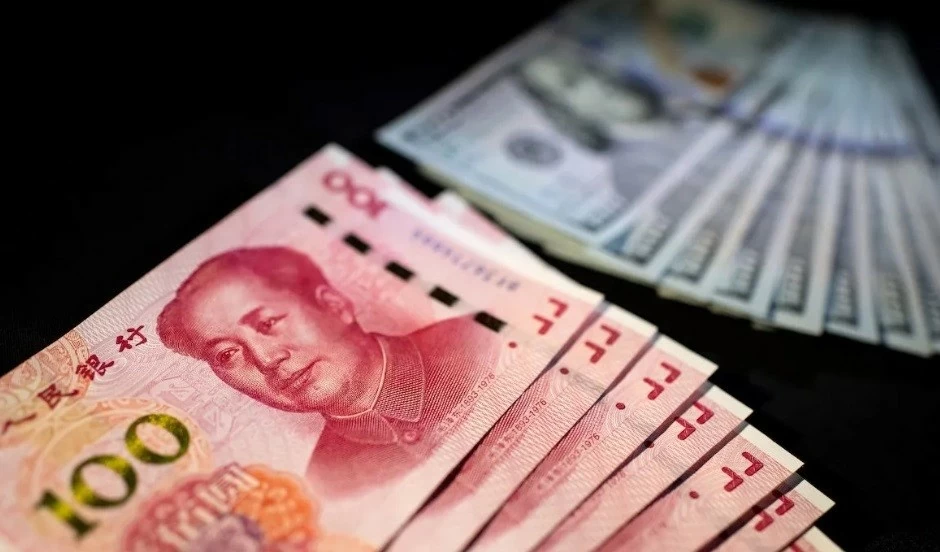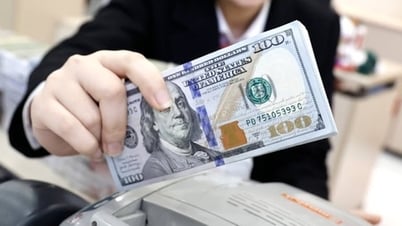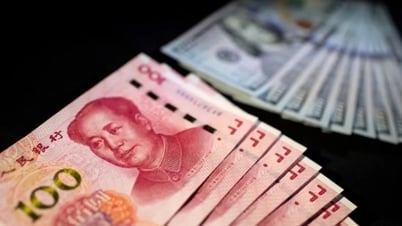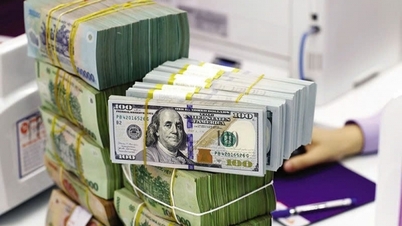A quiet but profound shift in global financial dynamics could be coming, significantly altering the relationship between China's yuan and the US dollar, experts predict.
 |
| China's yuan could surge if Chinese companies convert $2 trillion into yuan in response to the Fed's rate cut. (Source: Getty) |
The notable move by some Chinese companies to repatriate significant amounts of dollar-denominated assets is at the heart of this shift – a scenario that is likely to play out as US interest rates are cut in the coming months.
Huge capital flow is about to leave the US
At the Jackson Hole Economic Symposium last week, Fed Chairman Jerome Powell made it clear that the Fed was ready to cut interest rates in September. Specifically, he said: “The time has come for policy to be adjusted. The path is clear, the timing and pace of cuts will depend on incoming data, changes in the outlook and the balance of risks."
Mr. Powell said the Fed continues to focus on its dual mandate of bringing inflation down to 2% and boosting the job market, while also looking to ease monetary policy.
The Fed's move is expected to trigger a wave of capital flows back to China, with far-reaching implications for the yuan, the US dollar and global currency markets in general.
Estimates show that Chinese companies have accumulated more than $2 trillion in overseas investments, much of it parked in dollar assets.
Since the Covid-19 pandemic broke out, Chinese companies have earned higher profits by shifting their business overseas and holding larger assets, mainly in USD. However, this trend may soon reverse due to the Fed's decision to "cool" inflation and growing economic challenges in the world's number one economy.
As borrowing costs fall, the appeal of holding dollar assets is likely to decline, creating an incentive for Chinese companies to repatriate investments.
Forecasts for the amount of “repatriated” capital vary, but estimates range from $400 billion to $1 trillion. Even at the lower end of this range, the impact on the yuan could be significant, with some analysts predicting Beijing’s currency could appreciate by as much as 10 percent against the dollar.
The driving force of the change
Analysts say the narrowing interest rate gap between the US and China is likely to fuel the wave. Over the years, Chinese companies have built up a substantial foreign portfolio, from US Treasuries to corporate bonds and a variety of real estate.
However, with the Fed's upcoming move, all calculations are gradually changing direction.
In contrast to the challenging economic environment in Washington, Beijing’s economic environment remains relatively stable overall, albeit with its own challenges. As a result, domestic investments are starting to look more attractive as US bond yields decline, making it a good time to redirect capital flows.
If US interest rates fall and the dollar loses some of its strength, Chinese companies may choose to repatriate their money, converting their dollar holdings into yuan. This could put upward pressure on the yuan, especially if capital inflows are large.
A stronger yuan could signal a broader rebalancing of economic power, especially amid ongoing US-China tensions and the world's second-largest economy's growing importance on the international stage.
While this scenario is possible, it remains uncertain. Several factors could influence the magnitude and timing of capital diversion and the resulting appreciation of the renminbi.
First and foremost, the People’s Bank of China (PBOC) will certainly not sit idly by and let the yuan appreciate uncontrollably. Beijing is known for its tight control of its currency and has always intervened when necessary to maintain stability.
If Chinese companies simultaneously transfer hundreds of billions of dollars, or even up to a trillion dollars, it could have widespread impacts on global markets.
The US dollar’s dominance as the world’s primary reserve currency has long been underpinned by strong demand for US assets. A significant shift in this demand could impact the value of the dollar and potentially alter the balance of economic power between the two superpowers.
This is not just a US-China story. A stronger yuan could also impact other currencies, especially those in emerging markets that compete with China for export markets.
Additionally, if the yuan strengthens significantly, it could provide a competitive advantage to other Asian economies with weaker currencies by comparison and potentially reshape trade dynamics in the region.
However, these factors remain fraught with uncertainty, although the possibility of a stronger yuan and a weaker dollar is real and could reshape the global economic landscape in different ways.
Source: https://baoquocte.vn/fed-manh-tay-cac-cong-ty-trung-quoc-dong-loat-thao-chay-thi-truong-tai-chinh-toan-cau-sap-doi-dien-voi-con-dia-chan-284644.html


![[Photo] Students of Binh Minh Primary School enjoy the full moon festival, receiving the joys of childhood](https://vphoto.vietnam.vn/thumb/1200x675/vietnam/resource/IMAGE/2025/10/3/8cf8abef22fe4471be400a818912cb85)



![[Photo] Prime Minister Pham Minh Chinh chairs meeting to deploy overcoming consequences of storm No. 10](https://vphoto.vietnam.vn/thumb/1200x675/vietnam/resource/IMAGE/2025/10/3/544f420dcc844463898fcbef46247d16)






































































































Comment (0)